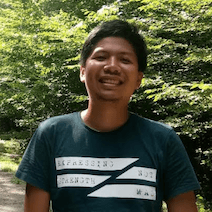SUMMARY
This is AI generated summarization, which may have errors. For context, always refer to the full article.
![[OPINION] The time my father broke the curfew during Martial Law](https://www.rappler.com/tachyon/r3-assets/612F469A6EA84F6BAE882D2B94A4B421/img/219F4F0C39184D30A03097B4347589C9/imho-2.jpg)

This week, Filipinos will remember – or, more accurately, hear again on various media – about the 1986 EDSA People Power Revolution. TV channels will show documentaries, pundits will talk about this moment in history, etc. And then, soon enough, many of us will forget about it all over again as we slog through the realities of our daily lives.
Among the millennial generation, only few were born when EDSA happened. Most of us were born after 1986.
In fact, I was born after the revolution, in 1993. All I knew of EDSA was from books I’ve read or from anecdotes my elders told me. One of these stories was from my father, who told me about his adventures as a postman back in the day. (READ: IN PHOTOS: EDSA Revolution: Not just in 4 days)
He told me that Martial Law meant ruthless curfews for the ordinary citizen. Everyone had to be back home by 6 in the evening. Everyone had to lock their doors. The people who failed to do these measures would be dragged into the cells of the Philippine Constabulary, or worse, sent to the military base to be “processed.” (READ: [OPINION] The most common misconceptions about EDSA People Power)
In my father’s case, he had ended up breaking the curfew due to his job as a postman. He was interrogated for two hours at what is now Camp Navarro in Bagong Calarian, Zamboanga City.
Luckily for him, the commander of the intelligence unit in the city knew him personally; after all, my father delivered mail to the base almost every day.
“Bakit ka nandito?” asked the intelligence officer. He was visibly surprised that my father was brought to the military base and had to endure that kind of treatment.
“Na-late sa delivery, sir,” replied my papang. He delivered a lot of mail across Zamboanga City back in those days.
“Pasensya na ah, trabaho lang, kailangan naming gawin ito. Alam mo naman eh…tara, tulog ka muna sa opisina,” the military man said by way of apology.
My father got away with a slap on the wrist.
Many – the activists, the political dissidents, the innocents who just happened to be in the wrong place at the wrong time – were not as lucky.
They were separated from their families for their views; worse, they were tortured, raped, and even killed and discarded at an unmarked place, to be forgotten by time and devoured by worms.
Today, we live in an age where tyrants and incompetents remain rampant, conflicts remain commonplace, minorities are still profiled, and human rights are still under attack. (READ: [OPINION] Did EDSA fail us?)
Let us remind ourselves of the blood, sweat, and tears that others have spent trying to keep our cherished freedoms alive. At the same time, let us be responsible with the freedoms we still have, and utilize them to pursue the good and the lofty, to work towards building a better nation and a brighter future.
This is what I think the spirit of EDSA is all about: it is about knowing the price of the freedoms that we enjoy today – and remembering that we have to fight to keep these rights in our hands. – Rappler.com
Earl Carlo Guevarra is a teacher of English at an international school in San Juan City. When he’s not teaching writing or grammar, he likes to drink fruit shakes and dabble in poetry.
Add a comment
How does this make you feel?
There are no comments yet. Add your comment to start the conversation.